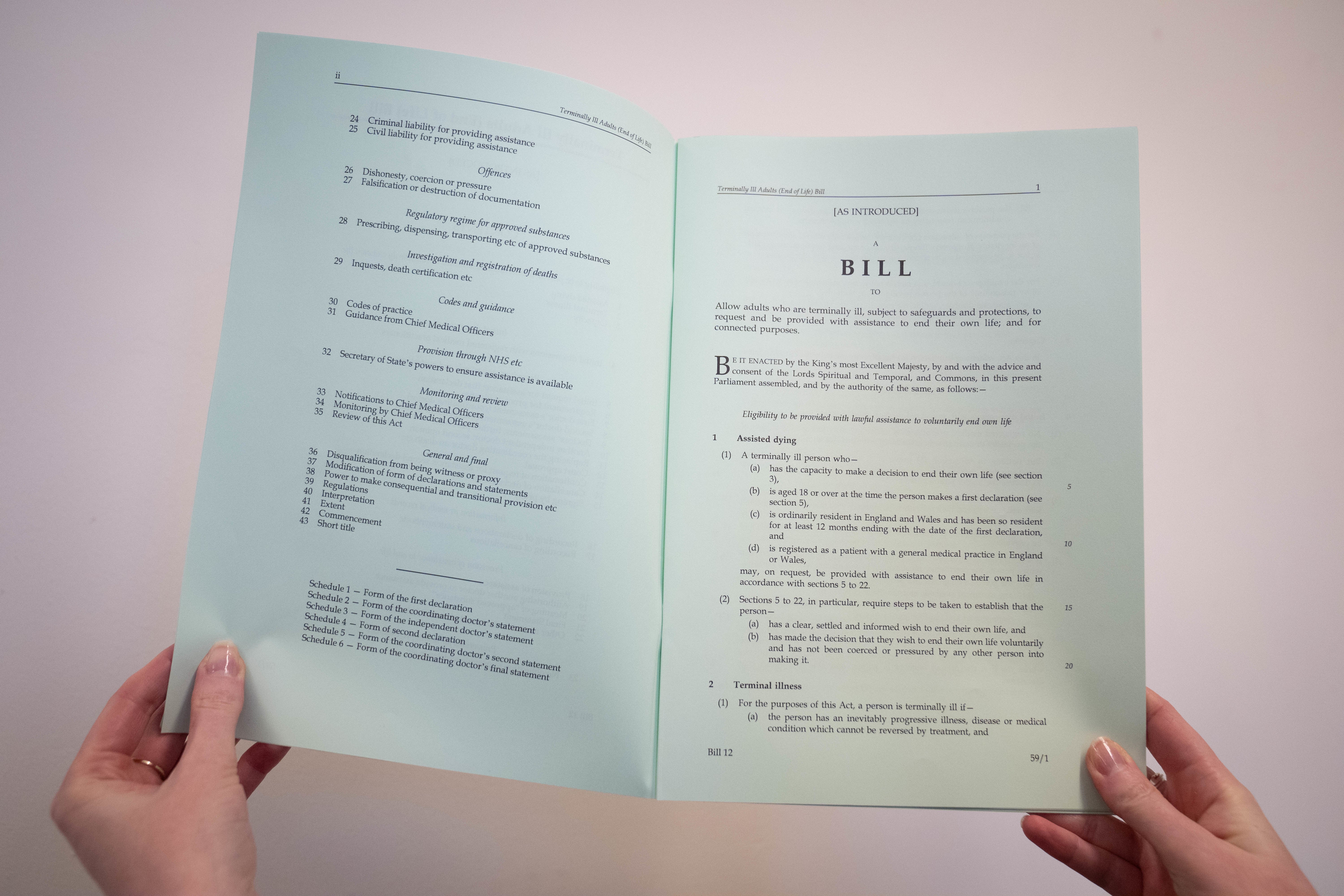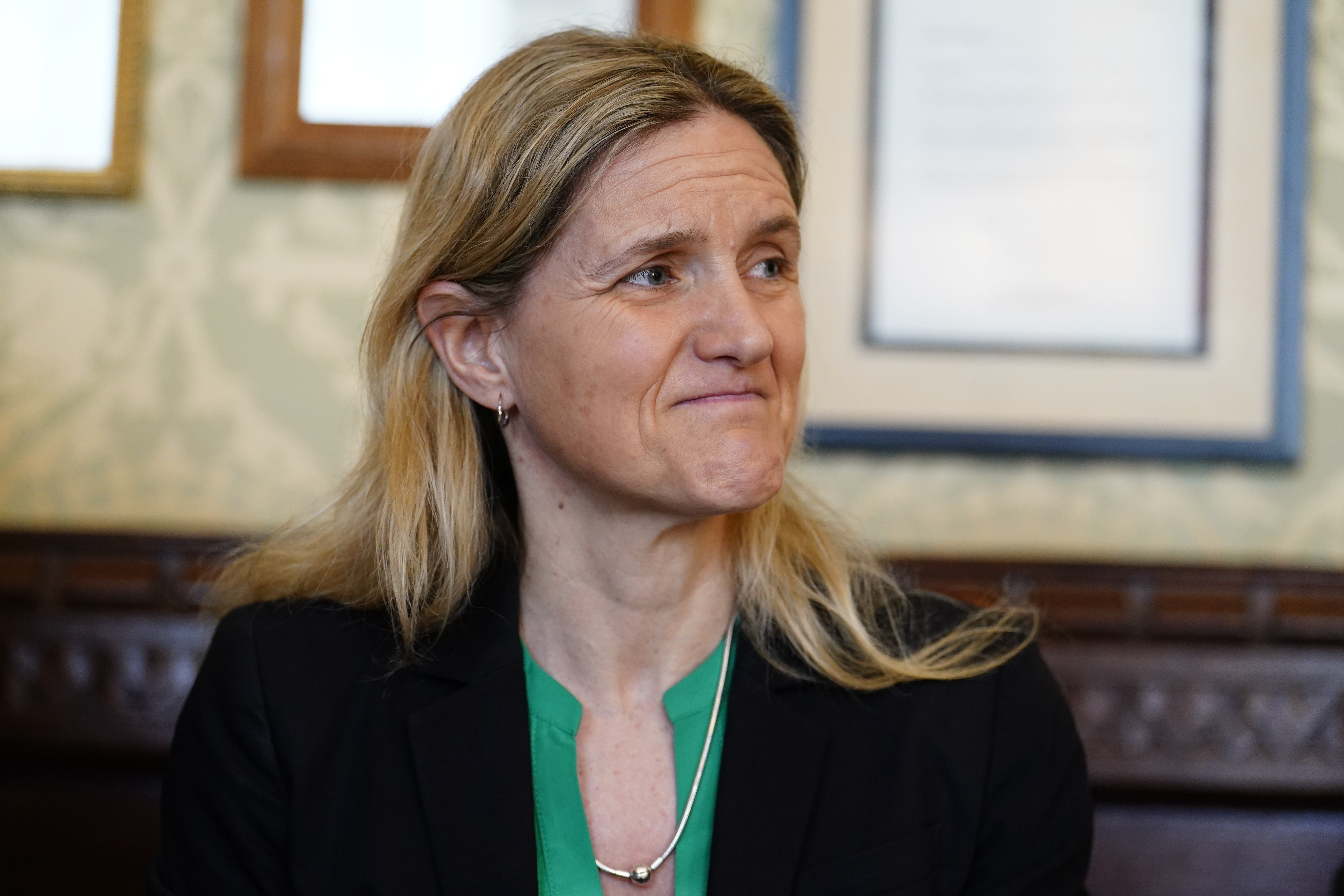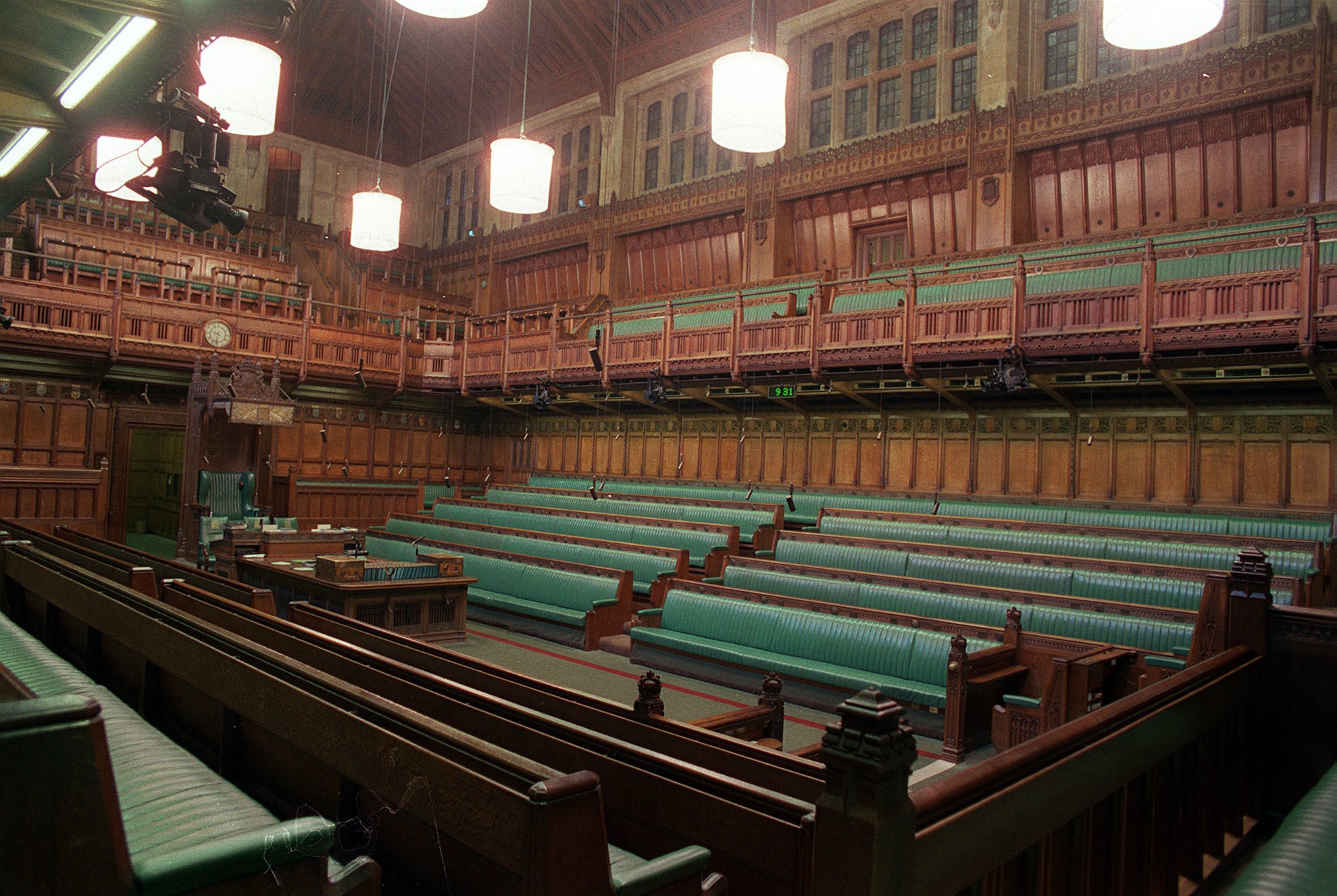The assisted dying Bill is back in the House of Commons on Friday for a vote that could see it either fall or move on to the House of Lords.
Kim Leadbeater, the Labour MP behind the bill, said she is confident MPs will back her in the crucial vote, as she warned it could be a decade before the issue is put to parliament again should it fail to pass.
Since introducing her Terminally Ill Adults (End of Life) Bill in Parliament last year, Ms Leadbeater has argued dying people must be given choice at the end of their lives, but opponents of her Bill have warned it fails to guarantee protections for society's most vulnerable.
What is in the Terminally Ill Adults (End of Life) Bill?

The proposed legislation would allow terminally ill adults in England and Wales, with fewer than six months to live, to apply for an assisted death.
This would be subject to approval by two doctors and a panel featuring a social worker, senior legal figure and psychiatrist.
The terminally ill person would take an approved substance, provided by a doctor but administered only by the person themselves.
When would assisted dying be available if the Bill became law?

The implementation period has been doubled to a maximum of four years from royal assent, rather than the initially suggested two years.
If the Bill was to pass later this year that would mean it might not be until 2029, potentially coinciding with the end of this Government’s parliament, that assisted dying was being offered.
Labour MP Kim Leadbeater, who is the parliamentarian behind the Bill and put forward the extended timeframe, has insisted it is “a backstop” rather than a target, as she pledged to “hold the Government’s feet to the fire” on implementing legislation should the Bill pass.
The extended implementation period was one of a number of changes made since the Bill was first introduced to the Commons back in October.
What other changes have there been?

The High Court safeguard has been dropped and replaced by expert panels – a change much-criticised by opponents who said it weakened the Bill, but something Ms Leadbeater has argued strengthens it.
At the end of a weeks-long committee process earlier this year to amend the Bill, Ms Leadbeater said rather than removing judges from the process, “we are adding the expertise and experience of psychiatrists and social workers to provide extra protections in the areas of assessing mental capacity and detecting coercion while retaining judicial oversight”.
Changes were also made to ensure the establishment of independent advocates to support people with learning disabilities, autism or mental health conditions and to set up a disability advisory board to advise on legal implementation and impact on disabled people.
Amendments added earlier this month during report stage in the Commons will also see assisted dying adverts banned if the Bill becomes law, and a prohibition on medics being able to speak with under-18s about assisted dying.
Do we know much more about the potential impact of such a service coming in?
A Government impact assessment, published earlier this month, estimated that between 164 and 647 assisted deaths could potentially take place in the first year of the service, rising to between 1,042 and 4,559 in year 10.
The establishment of a Voluntary Assisted Dying Commissioner and three-member expert panels would cost an estimated average of between £10.9 million to £13.6 million per year, the document said.
It had “not been possible” to estimate the overall implementation costs at this stage of the process, it added.
While noting that cutting end-of-life care costs “is not stated as an objective of the policy”, the assessment estimated that such costs could be reduced by as much as an estimated £10 million in the first year and almost £60 million after 10 years.
Do healthcare staff have to take part in assisted dying?
It was already the case that doctors would not have to take part, but MPs have since voted to insert a new clause into the Bill extending that to anyone.
The wording means “no person”, including social care workers and pharmacists, is obliged to take part in assisted dying and can now opt out.
Amendments to the Bill were debated on care homes and hospices also being able to opt out but these were not voted on.
Ms Leadbeater has previously said there is nothing in the Bill to say they have to, nor is there anything to say they do not have to, adding on the Parliament Matters podcast that this is “the best position to be in” and that nobody should be “dictating to hospices what they do and don’t do around assisted dying”.
What will happen on Friday?

The Bill is back for third reading, which is the first time MPs will vote on the overall piece of legislation since the yes vote in November.
It is expected some outstanding amendments might be voted on first thing on Friday before debate on the Bill as a whole begins.
MPs voted 330 to 275, majority 55, to approve the Bill at second reading in November.
The relatively narrow majority means every vote will count on Friday, to secure the Bill’s passage to the House of Lords for further debate and voting.
An an example, the Bill would fall if 28 MPs switched directly from voting yes to no, but only if all other MPs voted exactly the same way as they did in November, including those who abstained.
A vote would be expected to take place mid-afternoon.
What about assisted dying in the rest of the UK and Crown Dependencies?

The Isle of Man looks likely to become the first part of the British Isles to legalise assisted dying, after its proposed legislation passed through a final vote of the parliament’s upper chamber in March.
In what was hailed a “landmark moment”, members of the Scottish Parliament (MSPs) in May voted in favour of the Assisted Dying for Terminally Ill Adults (Scotland) Bill, backing its general principles.
It will now go forward for further scrutiny and amendments but will only become law if MSPs approve it in a final vote, which should take place later this year.
Any move to legalise assisted dying in Northern Ireland would have to be passed by politicians in the devolved Assembly at Stormont.
Jersey’s parliament is expected to debate a draft law for an assisted dying service on the island for terminally ill people later this year.
With a likely 18-month implementation period if a law is approved, the earliest it could come into effect would be summer 2027.
Maintenance fund to give £9bn a year to fix schools, hospitals and prisons
Assisted dying Bill MP confident Parliament will vote yes
Welfare reform legislation to be debated next month, MPs told
EuroMillions winner comes forward to claim £208m jackpot
‘I came to the UK for my dream career. Now Home Office errors have left me jobless’
First family fleeing abuse get keys to The Independent’s safe haven







